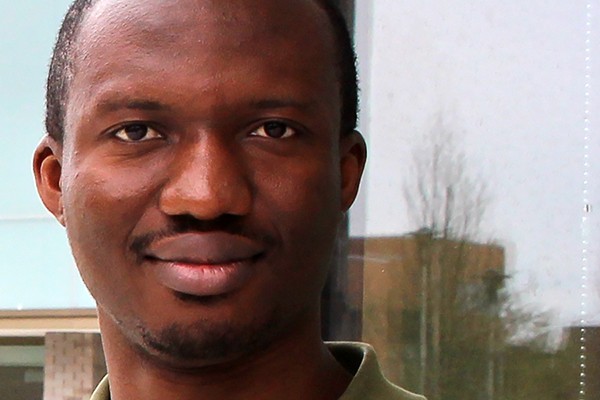 Chukwuma Ejieh is developing a program that will search Twitter for comments on products and their features.
Chukwuma Ejieh is developing a program that will search Twitter for comments on products and their features.
If two heads are better than one, how much better are millions of heads? A UWindsor computer science student is developing a program that will allow consumers to sift through Twitter posts from around the world, searching for comments on products and their features.
“Early results have shown about 85 percent accuracy in finding references of when people wrote about relevant features of a product on Twitter,” says master’s candidate Chukwuma Ejieh. “Hopefully, this will help consumers know with a great degree of accuracy what others think about not just products, but specific parts of products, before making a purchase.”
Twitter estimates there are 6,000 tweets posted each second, and 500 million each day. Ejieh accesses a mass of tweets from a particular time period and filters them for information. He mines through tweets looking for general opinions or sentiments about a particular product, then goes a level deeper—looking for opinions on specific parts or features.
“For a new phone, the person may post that they love the camera—they think the battery works great, but the speakers are subpar,” he says. “Now we have a more detailed picture of how people feel about particular features of a product.”
The program searches through only English-language tweets, though when training the computer to identify parts of a product, Ejieh still faces the challenge of having it understand synonyms and differing dialects.
“For example, how does the computer know that a Big Mac is not a MacBook computer, but is in fact part of the McDonald’s franchise? Or that a North American car’s gas tank is the same as the British car’s fuel tank?” he says. “These are the problems I’m trying to solve because we want to accurately identify, with great confidence, the parts of a product.”
Ejieh says this type of program can also be useful for competitors to research what features are important to consumers, and for manufacturers to improve their products based on customer feedback.
“The sheer volume of tweets makes it impractical for individuals to read each post, but it is the volume that makes the information so valuable and makes this such exciting work,” he says.
Ejieh plans to publish his research this summer and says there are no similar programs that have been made publicly available.



